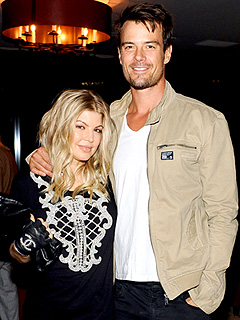WASHINGTON (AP) — The Food and Drug Administration has approved a first-of-a-kind breast cancer medication that targets tumor cells while sparing healthy ones.
The drug Kadcyla from Roche combines the established drug Herceptin with a powerful chemotherapy drug and a third chemical linking the medicines together. The chemical keeps the cocktail intact until it binds to a cancer cell, delivering a potent dose of anti-tumor poison.
Cancer researchers say the drug is an important step forward because it delivers more medication while reducing the unpleasant side effects of chemotherapy.
"This antibody goes seeking out the tumor cells, gets internalized and then explodes them from within. So it's very kind and gentle on the patients — there's no hair loss, no nausea, no vomiting," said Dr. Melody Cobleigh of Rush University Medical Center. "It's a revolutionary way of treating cancer."
Cobleigh helped conduct the key studies of the drug at the Chicago facility.
The FDA approved the new treatment for about 20 percent of breast cancer patients with a form of the disease that is typically more aggressive and less responsive to hormone therapy. These patients have tumors that overproduce a protein known as HER-2. Breast cancer is the second most deadly form of cancer in U.S. women, and is expected to kill more than 39,000 Americans this year, according to the National Cancer Institute.
The approval will help Roche's Genentech unit build on the blockbuster success of Herceptin, which has long dominated the breast cancer marketplace. The drug had sales of roughly $6 billion last year.
Genentech said Friday that Kadcyla will cost $9,800 per month, compared to $4,500 per month for regular Herceptin. The company estimates a full course of Kadcyla, about nine months of medicine, will cost $94,000.
FDA scientists said they approved the drug based on company studies showing Kadcyla delayed the progression of breast cancer by several months. Researchers reported last year that patients treated with the drug lived 9.6 months before death or the spread of their disease, compared with a little more than six months for patients treated with two other standard drugs, Tykerb and Xeloda.
Overall, patients taking Kadcyla lived about 2.6 years, compared with 2 years for patients taking the other drugs.
FDA specifically approved the drug for patients with advanced breast cancer who have already been treated with Herceptin and taxane, a widely used chemotherapy drug. Doctors are not required to follow FDA prescribing guidelines, and cancer researchers say the drug could have great potential in patients with earlier forms of breast cancer
Kadcyla will carry a boxed warning, the most severe type, alerting doctors and patients that the drug can cause liver toxicity, heart problems and potentially death. The drug can also cause severe birth defects and should not be used by pregnant women.
Kadcyla was developed by South San Francisco-based Genentech using drug-binding technology licensed from Waltham, Mass.-based ImmunoGen. The company developed the chemical that keeps the drug cocktail together and is scheduled to receive a $10.5 million payment from Genentech on the FDA decision. The company will also receive additional royalties on the drug's sales.
Shares of ImmunoGen Inc. rose 2 cents to $14.32 in afternoon trading. The stock has ttraded in a 52-wek range of $10.85 to $18.10.











